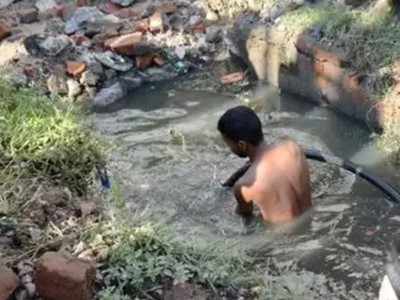Hindustan Times 16.09.2010
Fire tenders help take out larvaeWith the Capital reporting 79 new cases of dengue on Wednesday — taking the number of people infected to 2,012 — the Municipal Corporation of Delhi (MCD) is now leaving no stone unturned to fight the insect breeding.
MCD roped in fire tenders to power spray larvicides — insecticides specifically targeted against the larval life-stage of mosquitoes — on stagnant water, which has accumulated alongside NH-24 because of overflowing of River Yamuna. The stagnant water has become massive breeding grounds for mosquitoes.
“We are hoping to curb the reproduction of mosquitoes by killing the larvae. Whenever the water becomes still, mosquitoes generate. As this is mostly dirty water, they have become breeding grounds for anopheles or culex mosquitoes, which are not dengue causing but are a nuisance nonetheless,” said Dr V.K. Monga, chairman of MCD’s public health committee.
“We carried out the operation almost 100 metres into the riverside. The Indo-Tibetan Border Police is also helping the MCD remove the growth of weeds and shrubs underwater. This will help the larvicides do their job as mosquito breeding occurs on waterbeds,” he said. “Our strategy is not multi-fold. To curb larvae growth, we are spraying larvicides on the waterbeds.
For the open spaces we are carrying out fogging exercises and for closed spaces such as rooms and stadiums, we are using synthetic pyrithride, which is the ultimate solution to fight the mosquitoes.”
With the rains showing no sign of relenting and dengue cases spiralling by the hour, the MCD fears dengue cases will cross 3,666 — as it occurred in 2006.

